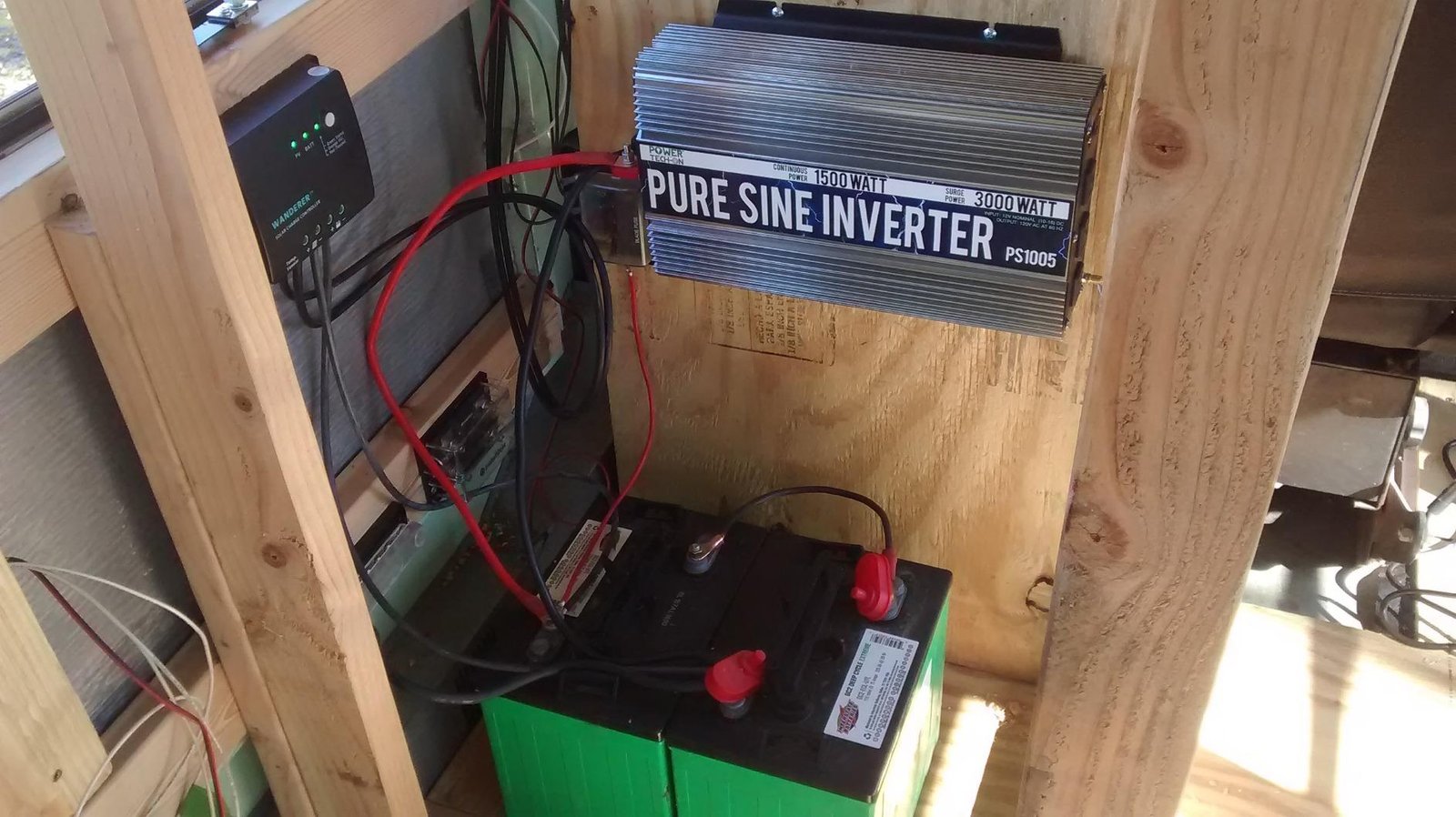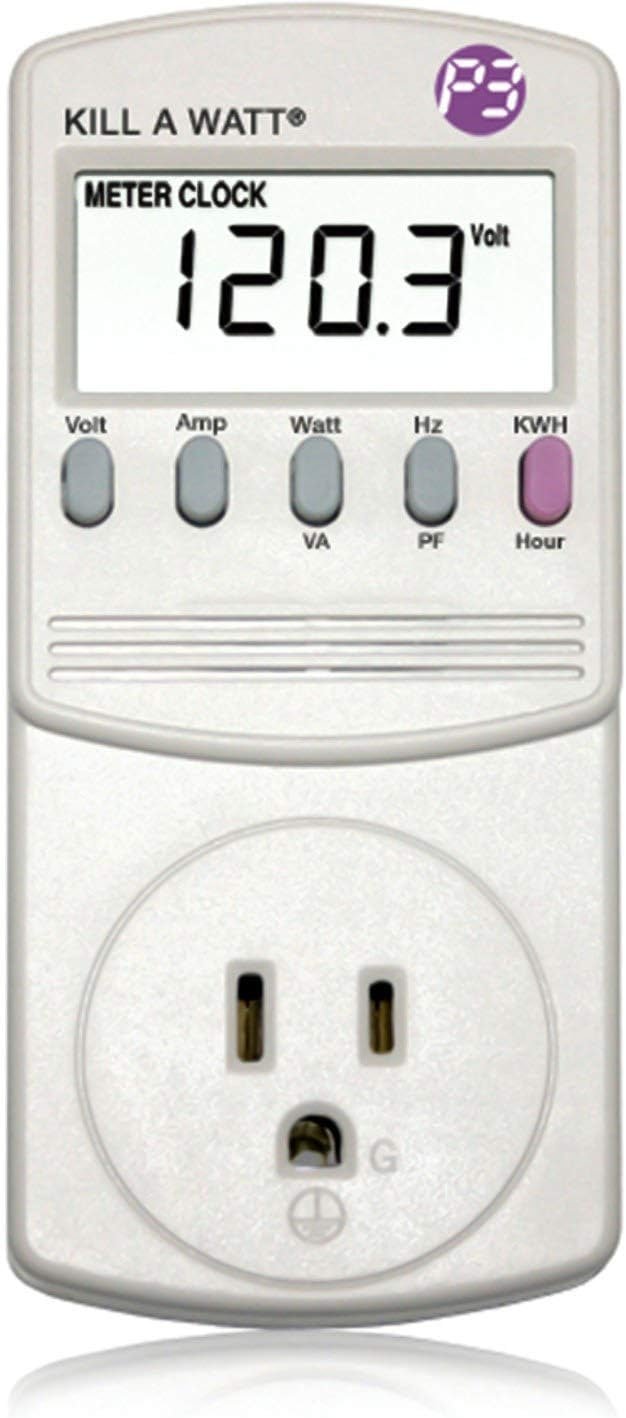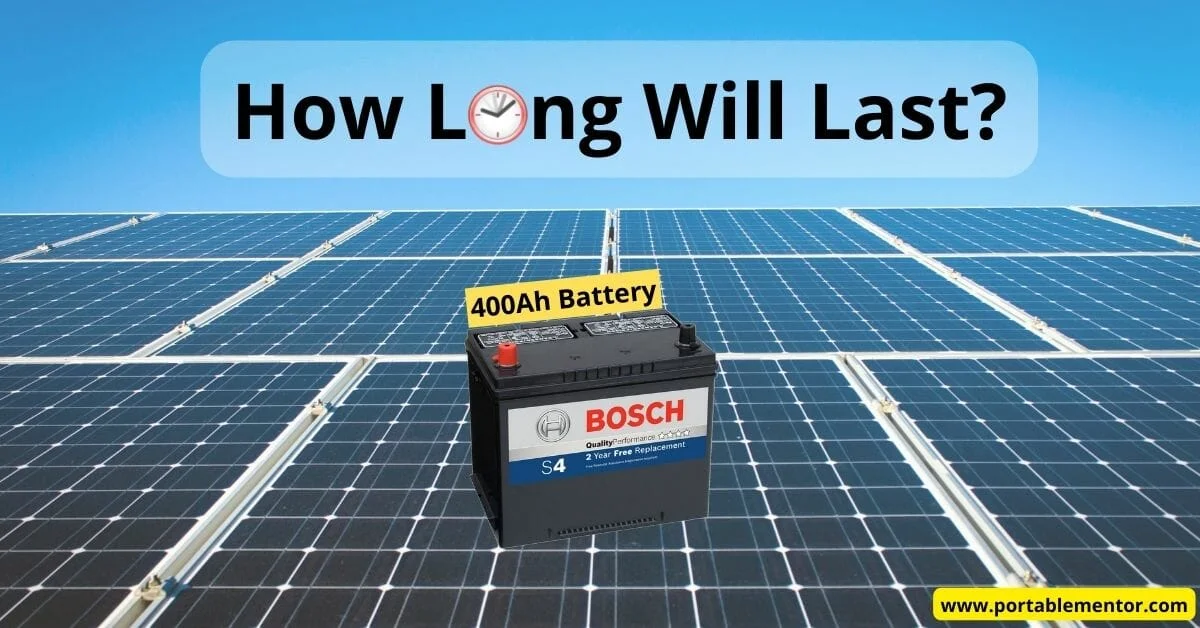So, you've got a 1500 watt inverter in your hands and you're thinking, "Great, I can power up 1500 watts worth of appliances with this!" Well, hold that thought because there's a bit more to it.
In this post, I will give you guidance on 1500 watt inverter and what you can run with it along with examples.
What is a 1500-Watt Inverter?
A 1500-watt inverter, as the name suggests --- is an inverter that can deliver up to 1500 watts of AC power from a DC source.
The source could be your car battery --- a solar panel --- or a standalone battery. But what does this mean in practical terms? Let's find out!
1500 watt inverter: what can it run?

Generally, a 1500-watt inverter has the capacity to power appliances like a fridge, TV, small microwave, laptop, and even a space heater.
However, To optimize the performance of your 1500-watt inverter, it is advisable to ensure that the combined wattage of all your appliances remains within the range of approximately 1200 watts.
You might be curious as to why we suggest a limit of 1200 watts instead of the full capacity of the inverter, which is 1500 watts. It's a valid question, and the answer lies in maintaining the longevity of your device.
To guarantee a safety margin and extend the lifespan of your inverter, it is recommended to allow for a minimum of 20% headroom. This is why we propose adhering to the 1200-watt limit.
Understanding 1500W Inverter Surge Power
When you see a 1500 watt rated inverter, this typically refers to its continuous power output. However, the maximum surge rating is an equally important factor to consider when determining what you can power with your "1500-watt inverter".
What is surge power? To put it simply, a power surge is a brief burst of energy used to start up an appliance and it lasts just a few seconds.
Here are appliances that require a power surge:
- Air Conditioners
- Refrigerators
- Freezers
- Washers
- Dryers
- Dishwashers
- Electric Ranges and Ovens
- Microwaves
- Garage Door Openers
- Sump Pumps
- Furnaces
Good news --- most inverters are designed to provide surge power. They can typically deliver about 2 to 3 times their rated capacity in a surge. For instance, my GoWISE 1500W inverter can handle a maximum surge rating of 3000 watts.
So, your 1500-watt inverter can likely produce a momentary maximum power of 3000 watts (ensure to check the label for more accurate information).
So, whether you plan to power multiple devices or a single substantial appliance with your 1500W inverter, remember to verify the surge power needs on the appliance's label. It should be compatible with the surge power rating of your 1500W inverter.
How to find the power rating of your appliances?
To find the power rating of your appliances, follow these simple steps:
- Look for the appliance's nameplate or label, typically located on the back or bottom of the device. For large appliances, the label might be inside the door or on the frame.
- The power rating is usually mentioned in 'watts' (W). If it's not directly provided, you may see 'volts' (V) and 'amps' (A). In this case, you can calculate the wattage by multiplying the voltage by the amperage (W=V x A).
Note down this information for all your appliances. This will help you understand whether your 1500 watt inverter can power the combined or individual load of these appliances.
Easy solution --- Use a watt meter. Simply plug your device into this handy gadget, and you're set. No need for calculations or understanding volts and amps. It will make it easy to calculate the power requirement for your 1500-watt inverter.
- Monitor your electrical usage by day, week, month, or year
- Large LCD display counts consumption by the kilowatt-hours
What Appliances Can 1500 Watt Inverter Run?
Here's a list of appliances with their required wattage capacity which can be powered by 1500 watt inverter.
| Appliance | Wattage |
|---|---|
| Microwave | 700 – 1200 watts |
| Coffee maker | 800 – 1500 watts |
| Refrigerator | 60 – 250 watts |
| Toaster | 800 – 1500 watts |
| Laptop (e.g., MacBook Pro, Dell) | 30 – 60 watts |
| TV (42 inch) | 50 – 60 watts |
| Xbox One | 70 – 120 watts |
| Rice cooker | 350 – 700 watts |
| Instant pot | 1000 – 1200 watts |
| Subwoofer | 100 – 300 watts |
Please note that the wattage ranges provided are averages, and the actual wattage can vary based on the specific model and usage conditions. Always check the power requirements of your specific appliances before connecting them to an inverter.
Will A 1500-Watt Inverter Run A Refrigerator?
The power consumption of the fridge is usually between 100-250 watts. So Yes, a 1500-watt inverter will easily run a fridge/refrigerator.
Before connecting your fridge to the power source, it's crucial to be aware of an important requirement. For this task, it is recommended to use a pure sine wave inverter.
Now, keep in mind, your fridge needs a quick power surge to start up, around 400-600 watts. Sounds like a lot? Don't worry. Your trusty 1500-watt inverter can handle that with ease. So, feel confident powering any sized fridge with your 1500-watt inverter!
Reminder: If you're running some additional appliances along with fridge --- make sure to limit the wattage up to 1200 watts.
Can A 1500W Inverter Run A Microwave?
Yes, a 1500W inverter can effectively power a microwave, provided the microwave's power input is less than 1200 watts of continuous power. Generally, smaller microwaves are typically within this range.
Hence, with a 1500W pure sine wave inverter, running a small microwave is entirely feasible and efficient.
What Will a 1500 Watt Inverter Run? --- Modified Vs Pure Sine wave inverter
When it comes to power inverters, there are two main types: pure sine wave and modified sine wave.
A pure sine wave inverter produces electricity that mimics the smooth and consistent waveform of the electricity you get from your utility grid. It delivers power in a clean and reliable manner, making it ideal for sensitive electronic devices.
Here are some examples of appliances that require a 1500 watt pure sine wave inverter:
- Computers
- Laptops
- Printers
- Audio/video equipment
- Medical monitors
- Power tools (drills, grinders, saws)
- Refrigerators
- Air conditioners
- Washing machines
- Microwave ovens
- Coffee makers
- Blenders
- High-end audio systems
- Amplifiers
- Mixers
- Studio equipment
A modified sine wave inverter is a simplified version that still allows you to power basic electronics and appliances. It is important to acknowledge that the waveform generated by a modified sine wave inverter is not as smooth as that produced by a pure sine wave.
This less smooth waveform has the potential to introduce harmonic distortions, which can occasionally cause problems with certain devices. The modified sine wave is like a cover band trying their best to play a popular song, but missing a few beats here and there.
The Importance of Battery and Cable Size for a 1500-Watt Inverter
The performance of your inverter doesn't solely depend on its wattage. The size of the battery and cables used also play a significant role.
What Size Battery is Ideal for a 1500-Watt Inverter?
For 1500 watt inverter, you need about three 12v 200ah lithium batteries to power your inverter at its full capacity for about 6 hours.
Choosing the perfect battery size for your 1500-watt inverter depends on how long you plan to run your appliances. To find the ideal size, follow these steps:
- Add up the wattage of all the appliances you want to run.
- Multiply this total wattage by the number of hours you need them to run.
- Then, divide the result by 12 for a 12v battery system, by 24 for a 24v system, or by 48 for a 48v system.
For a 1500 watt inverter, a 24v battery system is usually the most effective choice.
For example, if you intend to operate a 500-watt appliance for a duration of 3 hours, it would require a minimum battery capacity of 120Ah.
Must Read: How many batteries for a 1500W inverter?
What Cable Size Should You Use for a 1500-Watt Inverter?
For a 12v 1500 watt --- you need a 4/0 AWG wire size and for a 24v 1500 watt inverter, you need a 2/0 AWG wire size.
Here's a chart illustrating what size wire you need for your inverter with different voltages.

Tips for running an inverter on a battery for best performance.
- Match the DC Input Voltage with the Battery: The DC input voltage of your inverter should align with your battery's voltage. For example, if your inverter supports 12 Volts or 24 Volts, make sure your battery matches these specifications1.
- Ensure Correct Electrode Connection: Make sure the positive (+) and negative (-) electrodes of the inverter and battery are connected correctly. To ensure a stable and efficient transfer of energy, it is important to use a thick and appropriately sized connection line.1.
- Place the Inverter in a Suitable Environment: Position your inverter in a dry, cool, and well-ventilated spot. Keep it away from objects that could obstruct airflow and maintain a distance of about 20 cm from surrounding items. It is recommended to avoid placing it in environments with temperatures exceeding 40℃ (104℉)1.
- Ground the Inverter Before Use: Before connecting your devices to the inverter, ensure the inverter casing is properly grounded. This will help prevent electrical shocks and protect both you and your devices1.
By following these tips, you should be able to run a 1500-watt inverter on a battery with optimized performance.
Conclusion
In conclusion, a 1500-watt inverter is a versatile device capable of powering various household appliances such as fridges, microwaves, and TVs. It is important to limit the total wattage to around 1200 watts to prevent overstressing the inverter.
Additionally, understanding power surges and ensuring compatibility with surge power ratings is crucial. Determining the power rating of appliances, selecting the appropriate battery size (such as three 12v 200ah lithium batteries), and using the correct cable size are essential for optimal inverter performance. Which I have explained in detail in this article.
I hope this guide was helpful to you. if you still have any queries don't hesitate to Contact Us. Thank You!




